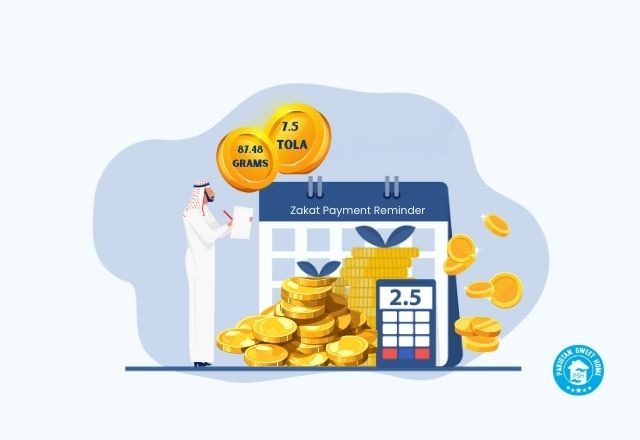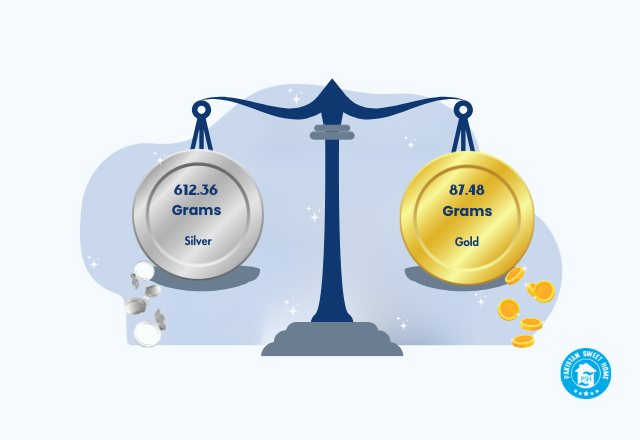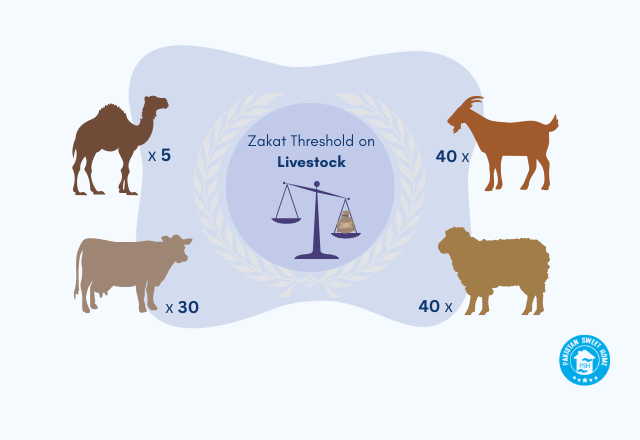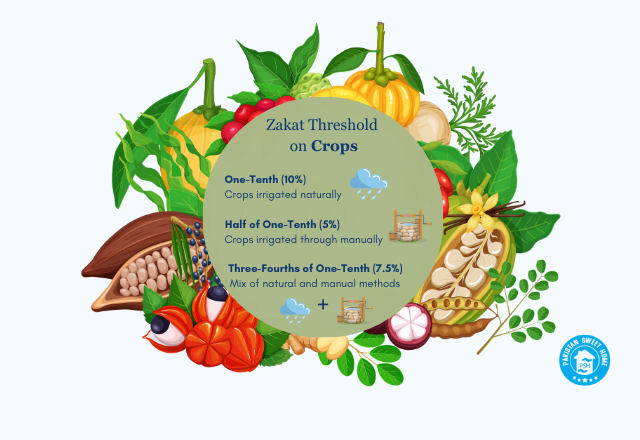
- DONATE
- SPONSOR A CHILD
- Zakat calculator
- SIGN IN
-
- About Us
- FAQ's
- Contact
- Get Involved
- Admissions
- Sign In
- SPONSOR A CHILD ZAKAT CALCULATOR DONATE
-
info@pakistansweethome.org.pk
(051) 4865856
+92 335 1118477
Many Muslims often struggle with the difficult task of calculating Zakat on their cash holdings.
The uncertainty and complexity surrounding this obligation can lead to confusion and anxiety. To ease this burden, we provide a simple formula and example, making the calculation of Zakat on cash straightforward and accessible.
Let's understand the specific formula and steps in determining the Zakat amount owed on cash holdings.
The formula for calculating Zakat on cash is as follows:
Zakat Amount = (Cash on Hand + Cash in Savings + Cash in Current Accounts + Cash in Fixed Deposits) * 2.5% |
Here is an example of how to calculate zakat on cash in rupees.
Let's assume a person has the following cash assets:
Cash on Hand: Rs. 50,000
Cash in Savings Account: Rs. 100,000
Cash in Current Account: Rs. 30,000
Cash in Fixed Deposits: Rs. 70,000
Total Cash Assets = Rs. 50,000 + Rs. 100,000 + Rs. 30,000 + Rs. 70,000
= Rs. 250,000
Zakat Amount = Rs. 250,000 * 2.5%
= Rs. 6,250
Therefore, the Zakat amount on cash assets amounting to Rs. 250,000 would be Rs. 6,250.
Note: It's important to ensure that the wealth is rightfully owned and that there are no outstanding debts or obligations tied to it. Additionally, Zakat does not apply to funds used for immediate expenses or essential needs.
Therefore, individuals are encouraged to calculate their Zakat accurately and fulfill this religious obligation accordingly.
Get Accurate Zakat Calculations on Cash |
Before calculating Zakat, it's important to ensure the following conditions are met:
Zakat is due on all cash assets, whether kept in hand, stored in bank accounts, or invested in trade.
However, to be eligible for Zakat, the following conditions must be met:
Physical cash you possess at the end of the lunar year is Zakat-eligible if it meets the conditions above.
Zakat is also applicable to money held in the following bank accounts:
If your account balances fluctuate throughout the year, you may:
Islamic Banks:
Zakat is due on both principal and profits, once the amount exceeds the Nisab and a full lunar year has passed.
Interest-Based Banks:
Zakat is only due on the principal amount. Interest is considered impermissible in Islam and cannot be used to pay Zakat.
Cash savings held for a full lunar year and exceeding the Nisab are also subject to Zakat.
Let's say you have a total savings amount of 1 lakh Rupees. Then, how much Zakat is on 1 lakh rupee?
Calculate 2.5% of the total cash savings:
Zakat = Total Cash Savings × Zakat Rate
Zakat = 1,00,000 × 0.025
So, in this example, the Zakat due on your cash savings of 1,00,000 Rupees would be 2,500 Rupees.
Cash that is invested in business or trade is also Zakat-eligible, including profits earned during the year.
Zakat is obligatory on:
According to Muslim scholars, shares and stocks represent a share in the capital of a company or business entity.
They categorize shares and stocks as contributions to capital, subject to fluctuations, much like bonds, which are contractual financial instruments with specified terms and compensation. Consequently, both types of wealth possess a market value susceptible to fluctuations, necessitating the payment of zakat.
In conclusion, the obligation of Zakat on cash, whether it be in hand or in various bank accounts, is a crucial aspect of Islamic finance. With each passing lunar year, a portion of this wealth is allocated to those in need, fostering equity and compassion within the community.
At Pakistan Sweet Home, every child arrives with a different story—some with loss, others with silent pain. Your orphanage donation helps us provide healthy food, quality education, a safe and caring environment, clothing, healthcare, and arrangements for extracurricular activities. It’s a simple way to bring normalcy back into a child’s life when everything else has changed.
Yes, Zakat is obligatory on cash that reaches or exceeds the nisab of Zakat and meets other conditions. If you don't know how to calculate zakat on cash, use our Zakat calculator to determine your Zakat for the current year.
Zakat on cash is calculated at 2.5% of the total amount exceeding the Nisab threshold. This means that for every 100 units of cash you possess, you are obligated to give 2.5 units as Zakat.
Zakat on cash can be paid directly to those eligible to receive it, such as the poor and needy, or through reputable charitable organizations like Pakistan Sweet Home.
Donating your Zakat to us directs your contribution towards orphan children, fulfilling not only your religious duty but also providing vital support and care to vulnerable members of society.

WRITTEN BY
Ali Raza (Zakat and Sadaqah Regulations)
Ali Raza holds a Master of Arts in Islamic Studies and is an expert in Islamic theology and jurisprudence. Specializing in Zakat, Sadaqah, and other Islamic donations, Ali's writings provide valuable insights into the religious and ethical aspects of charity. His work for Pakistan Sweet Homes aims to educate and inspire readers to support orphan care and charitable initiatives, making him a key contributor to the organization's mission.
Ali Raza holds a Master of Arts in Islamic Studies and is an expert in Islamic theology and jurisprudence. Specializing in Zakat, Sadaqah, and other Islamic donations, Ali's writings provide valuable insights into the religious and ethical aspects of charity. His work for Pakistan Sweet Homes aims to educate and inspire readers to support orphan care and charitable initiatives, making him a key contributor to the organization's mission.
Hadith About Zakat: A Prophetic Guide on Obligatory Charity

How to Calculate Zakat on Gold and Silver?

Zakat on Property: How to Calculate, When It's Due, Types & More

Zakat on Salary: Calculations, Formula, Examples, Scenarios

10 Key Reasons Why Zakat is Important in Islam

The Benefits of Zakat in Islam

What are the Eight Recipients of Zakat?

What is the Difference Between Zakat and Sadaqah in Islam?

Zakat al Fitr or Fitrana: What, When & How to Give

How Much is Zakat Nisab in 2025? Complete Guide with Assets & Rates

Zakat on Livestock Explained: Nisab for Camels, Cattle, Goats & Sheep

Understanding Zakat on Agricultural Produce: Fruits and Grains
